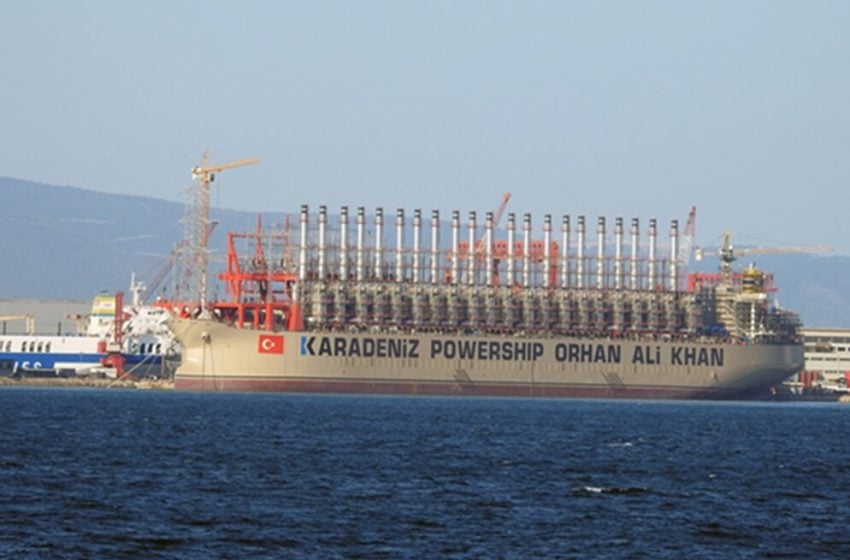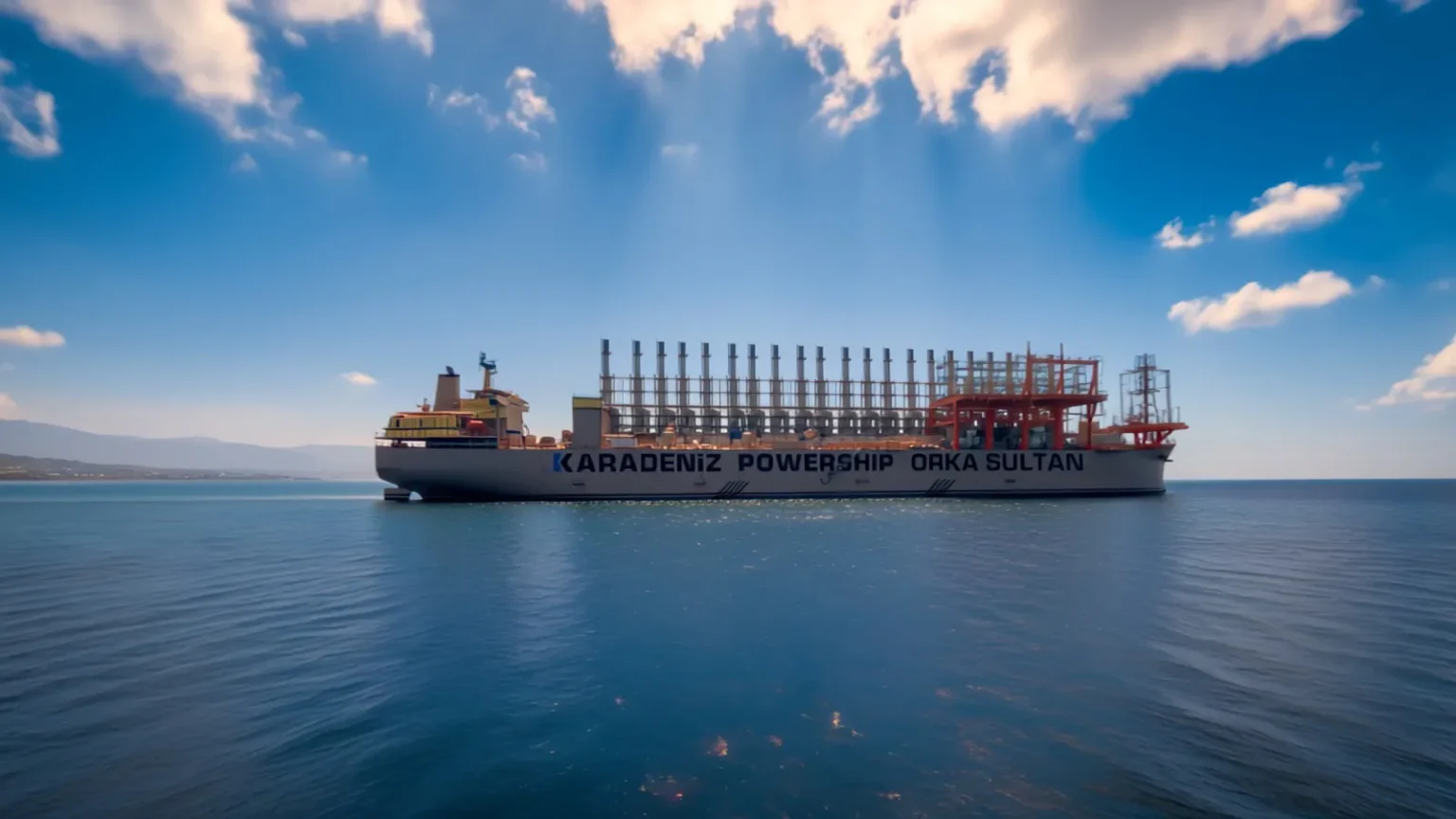Turkish floating power plant in southern Iraq has arrived at the port of Umm Qasr, marking a major step in addressing the country’s long-standing electricity shortages. The arrival of this mobile power solution is expected to stabilize energy supply, especially during peak demand in summer, and support Iraq’s ongoing efforts to strengthen its electricity infrastructure.
For immediate relief, Iraq secured a short-term agreement with Turkish energy firm Karpowership. The deal calls for deployment of two floating power ships to supply up to 590 MW of electricity over 71 days This is intended to stabilize the grid while longer-term solutions are rolled out.
What Is a Floating Power Plant?
A floating power plant is a mobile electricity generation unit mounted on a ship or barge. These plants are designed to provide quick and flexible power solutions, especially in regions where traditional power infrastructure is lacking or has been damaged. They can operate on various fuels, including natural gas and heavy fuel oil, and are capable of delivering substantial amounts of electricity to the grid.
Arrival of the Power Ship: On the Ground
The first Turkish floating power plant in southern Iraq—the Karadeniz Powership Orhan Ali Khan—docked this week at Umm Qasr port in Basra . Capable of producing 125 MW, it brings a vital lifeline to a struggling grid. A second, identical ship will follow in approximately a month
Minister Ziad Ali Fadel confirmed the first ship will be fully operational within seven days, once fuel pipelines and infrastructure are in place Together, both ships are expected to deliver over 250 MW daily, offering immediate support where demand is most acute .
How the Floating Power Plant Helps
Rapid Deployment
Floating power plants—or powerships—are mobile solutions that can dock and supply electricity far quicker than land-based facilities. They use dual-fuel engines and flexible infrastructure to deliver fast, reliable power In Iraq’s case, the ships bypass the delays needed for constructing new plants.
Grid Stabilization
The Turkish floating power plant in southern Iraq acts as a stopgap, reducing pressure on outdated infrastructure and covering the peak load period. This allows the grid to regain stability and helps prevent nationwide outages

Buys Time for Long-Term Projects
While powerships ease short-term distress, Iraq continues to pursue major upgrades:
- A 24 GW deal with GE Vernova
- A 14 GW agreement with Siemens Energy
- Construction underway for a 1 GW solar farm by TotalEnergies in Basra
These large-scale projects will take time—making the powerships crucial interim assets.
What Comes Next?
- Second vessel arrival: Expected in about a month to reinforce power supply
- Full-scale operations: The first ship should commence electricity generation within a week
- 71-day contract term: Both ships will operate under a fixed short-term contract, extendable if needed
Authorities remain vigilant, monitoring demand and grid performance closely as summer demand continues.
Broader Significance of the Powership Deal
Energy Security and Resilience
Deploying the Turkish floating power plant in southern Iraq shores up Iraq’s ability to tackle urgent shortages, especially when conventional sources falter.
Regional and Global Partnership
The deal highlights growing energy collaboration between Iraq and Turkey—leveraging Karpowership’s 10,000 MW global fleet—and sets a new benchmark for rapid energy diplomacy
Strategic Flexibility
Floating power is a flexible, scalable approach that Iraq managed to negotiate under pressure. It reflects a strategic pivot—toward modular, mobile energy solutions during crisis periods.
Final Thoughts
The Turkish floating power plant in southern Iraq brings fast, reliable energy at a moment when Iraq most needs it. It delivers 125 MW immediately and promises up to 590 MW in total, helping the country avoid crippling blackouts as it invests in long-term power infrastructure.
Do follow us: Instagram
Read More: Bahrain and APM Terminals Sign Agreement to Expand Khalifa Bin Salman Port



